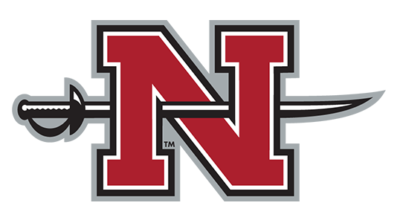SUCCESSFUL GRADUATES
Your connection to the Petroleum Engineering Technology & Safety Management program doesn’t have to end after graduation.
Update Your Profile
We want to stay in touch with you! Please help us by filling out this short form, CLICK HERE.
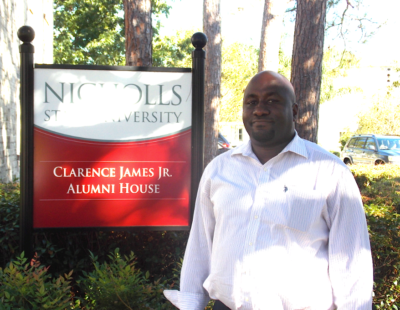 Deepwater Regulatory Specialist – Shell
Deepwater Regulatory Specialist – Shell
After about 10 years in the oil field, Tamarris Durham decided to get a degree that would further his career in the field, and Nicholls turned out the be the perfect place. Our university offers unique coursework that allows those in the oil field to continue their education while working.
“So the oil field is kind of divided—you have the drilling folk, you have the production folk that produce the oil and gas after it’s drilled, and you have those folk that service the oil field,” Tamarris said. “Our program here [at Nicholls] is kind of a combination of all that. It takes a person that has no knowledge of the oil field and walks them out of the doors having knowledge of how the oil field works.”
Through his classes at Nicholls, Tamarris learned why he did what he was doing offshore and how to do it more effectively and safely. It brought a new perspective to his work, but it was more than that. Through his coursework, which eventually lead to a degree in Petroleum Engineering Technology, Tamarris was able to come into contact with industry professionals, who were his instructors and mentors. Because of the program and his involvement with the Society for Petroleum Engineers, Tamarris was able to network with people he otherwise wouldn’t have come into contact with. This eventually led him to a job at Chevron, where he was hired (and promoted) all before he even finished the program.
“Right now I work for Shell Oil,” Tamarris said. “I’m a Deep Water Regulatory Specialist. So what do now is…my job is to transfer the application to drill from the engineers at Shell to the government, The Bureau of Safety Environmental Enforcement. Prior to Macondo, a permit was about 40 pages, and now they’re about 400 pages. So I take inputs from the engineers—the engineers don’t speak in regulatory terms—and put that in a language that the government understands.”
Tamarris really has to take on several different roles and understand various forms of technical language to do his one job. As a Deep Water Regulatory Specialist, Tamarris has to mediate between the engineers and the government to make sure regulatory processes are followed and to ensure that the logistics of the operation work. He has to have a working knowledge of both the governmental and technical engineering sides.
“Nicholls is the only place where a person that works offshore can come in, go to college on your seven days off, and then go back offshore to work,” Tamarris said. “I worked seven-and-seven the whole four or five years I was at Nicholls. It’s the only place you’ll find that kind of education.”

Health, Safety & Environmental Manager
Oil States
While Page Durocher started at Nicholls, because he was from the area, he felt easily distracted. To focus on his academics, Page left to attend the University of New Orleans, where he graduated in 1994 with a bachelor’s degree in biology. It wouldn’t be very long, however, before he returned to his home.
“Then I moved to Texas for a few years, and I worked for Texas Parks and Wildlife, and had the opportunity to come back to Houma and work as an environmental manager for an oil field service company,” Page said. “So I took that opportunity and it soon became evident that while the environmental part of the job was important, it wasn’t as critical as the safety of the people that were involved in that manufacturing facility. And it was the precursor to the company that I’m working for now, Oil States.”
But eventually, Nicholls called him back, with a degree that was indispensable to his job. So he went back to school.
“I found out about this Safety Technology program [a year after I started with the company] in ’98, and Oil States was good enough to say that they’d send me back to school and pay for it,” Page said. “So I came back to Nicholls for the Safety Technology degree. In 2000 I received that associate’s degree.”
Now Page works as a Heath Safety Environmental Manager for Oil States. He must manage all of the aspects of health and safety for the employees at Oil States, as well as expand and support at the same time. As a safety manager, Page must also tackle any environmental issues that the manufacturing facility has. Page learned much in his time at Nicholls, and it gave him the professional know-how to perform his job more effectively and efficiently.
“[Nicholls] helped tremendously, because I was working in the field and after I had the opportunity to go back and learn a whole lot more about safety than I could just read in magazines and books and training classes,” Page said. “We got into the depths of what it actually means to manage the safety. Then I knew the lingo. I could understand what people were talking about when, where and how. It was a tremendous help.”
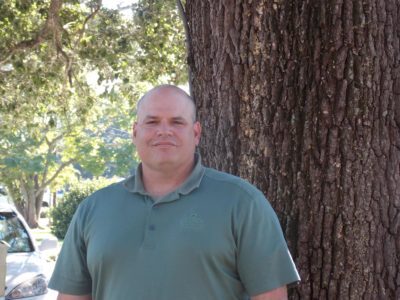 Senior Account Manager
Senior Account Manager
Superior Energy Services
Christian Falcon credits Nicholls with being able to see his family more often. Before he finished his degree at Nicholls, Christian worked everything from seven and seven to 14 and 14 to 28 and 28. In 2008, Christian earned a bachelor’s degree in petroleum technology and an associates degree in petroleum safety.
“I like my job,” Christian said. “I’m home every night if I want to be. I don’t have to be on the rigs anymore. I put 15 years in the field away from my family half the year, but now I don’t have to do that anymore. It’s a direct result of my degree.”
Right now Christian is a Senior Account Manager for Superior Energy Services. In this position, Christian works in the sales department, calling upon customers to find new work or following up on completed work. He works on completions in the wells, this includes fracking. But Christian explains that frack work is less controversial than people realized.
“My group fracks in deep water, offshore in the Gulf of Mexico—the one that they usually have issues with are the ones in Pennsylvania,” Christian said. “The biggest thing is that they think that we are going to have problems with the drinking water. The last thing any oil company wants to do is frack in the drinking water, or any water, because if you do that, you don’t have a well, because then all you’re going to produce is water. You don’t make anything producing water; you make it producing oil. Enough surveys through there, seismic and other surveys to know what’s there and they make sure that they’re nowhere near water when they frack.”
Because of Nicholls, Christian has a college degree. With his busy schedule, especially when working offshore for days or weeks or even a month at a time, going to school at any other institution would have been impossible.
“I can say that without this program, I would not have a college degree,” Christian said. “When I started, I had a wife, children, and the only thing I could do was to work seven and seven and 14 and 14 if I wanted to get a degree, and that’s what I did. It took me 15 years. I started in ’93 and I went to school for a year and a half, took off four or five years. Then I went back for a year. Then I worked overseas, 28 and 28. It was just pieces here and there. And finally, toward the end, between my mom and my wife pushing me, I went ahead and graduated. When I talk to students, I usually—instead of talking to them about things that most people talk to them about—I usually tell them about perseverance, that just because you get out doesn’t mean you can’t come back in. That’s the message I try and get across to the students.”
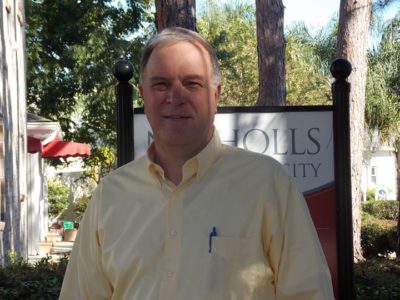 Development Manager
Development Manager
C&D Production
Herbie Kimble’s Nicholls education not only helped him network with future customers and begin to form business relationships, it helped him start his career.
As the business development manager for C & D productions, Herbie is in charge of finding new clientele and expanding the business.
“We have offices across the country and my job is to identify new prospects and new customers,” Herbie said. “We provide contract labor, personnel to oil and gas producers. My job is to identify customers who use our services to grow the business.”
Herbie’s received a degree in business administration from Nicholls, and it laid the foundation for his future job in the oil field. Nicholls allowed Herbie to foster relationships with future customers for C & D. It also allowed Herbie to network and foster relationships with these customers and others in his field.
Other than a great education and plenty of networking opportunities, Nicholls did one more thing for Herbie.
“Actually, someone from Nicholls hired me. I grew up in New Orleans and I met a guy that was looking for someone to work in Morgan City,” Herbie said. “And 35 years ago, I moved to Patterson to go to work in the oil field, and that was it. He was working in the oil field, and I answered an ad. I came to find out he was a Nicholls graduate. So I worked with him for probably 15 years before he retired.”
Being a Nicholls graduate is precisely what landed Herbie his first job in the field.
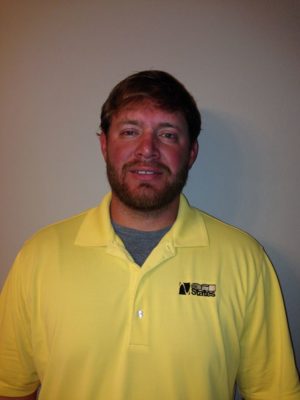
Training Manager
Oil States
With a Nicholls degree in hand, Jeff Ledet was able to progress more readily in his field. It gave him the confidence he needed to excel as a training manager at Oil States.
After working about a year in the oil field, Jeff was encouraged by his employer to pursue a higher education, so that’s just what he did. In 2011, Jeff finished with an associate’s degree in Safety Technology. Jeff was able to keep his job while he was in school, and that was important for him.
“Having that opportunity to work and go to school kind of makes it a little easier because you’re actually doing what you’re going to study for,” Jeff said. “Most of the stuff you use in class, you can also use on the job.”
The relevance of his coursework to his job made school easy to relate to, and it was applicable to what Jeff was working on. He was able to gain more background knowledge about the field he was in and that allowed Jeff to advance in his position. The health and programming class that Jeff took proved to be especially helpful for him. It went over adult learning principles, classroom styles, and it was presentation based. While in the class, students worked with PowerPoint frequently and presented in front of the class and crowds.
As a training manager, Jeff gives presentations at least once weekly, from anywhere from 10 to 300 people. This class made Jeff feel more comfortable while giving his presentations. It gave him the experience he needed to be confident in his public speaking abilities.
“Actually I still use some of my notes [from Nicholls] for the training aspect,” Jeff said. “Now I’m a training manager…. We keep people safe, and we teach people how to keep themselves safe.”
